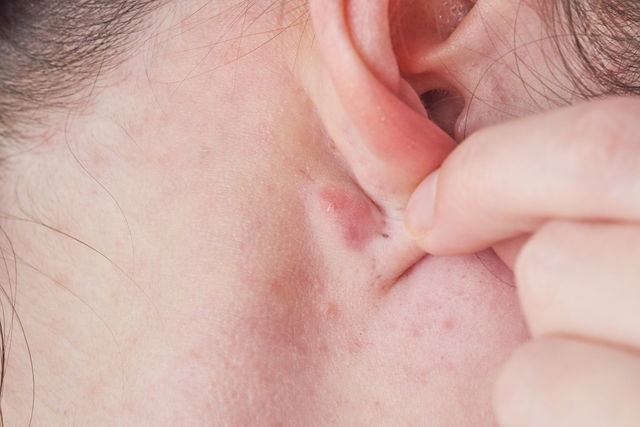

Pay attention to where and for how long your nodes feel enlarged. Regions with swollen nodes indicate where your body is fighting disease or infection. This is usually due to sinus infections or the common cold, but some other frequent reasons why lymph nodes become swollen: Here it is filtered with infection-fighting white blood cells and released back into the bloodstream. On most occasions, swelling occurs in the nodes behind the ears and on the neck. Dangerous substances travel to the nodes by lymph fluid.

Lymph nodes become swollen when they are actively fighting infection and illness. It can be helpful to know where your lymph nodes are located to get ahead of potentially serious ailments. Paying close attention to swelling in your nodes is important as swelling indicates that your body is dealing with sickness. Symptoms that are commonly associated with lymph node swelling include: You can check for lymph node swelling by gently pressing over areas with clusters, such as the sides of your neck or around your armpit. Lymph nodes largely go unnoticed until they are enlarged or swollen due to them trying to fight infection and illness. Lymph nodes are found in the following five areas of the body in clusters: They play a major role in our ability to fight infection and disease. Sometimes referred to as lymph glands, their job is to collect and drain fluid from our tissues. Lymph nodes are small, kidney bean-shaped structures. They use lymph fluid, which is partially made up of white blood cells, or lymphocytes, to filter foreign and dangerous substances. There are about 500 to 600 lymph nodes in our bodies. Keep reading to learn more about the important function of your lymphatic system and what having swollen nodes means for your health.
Lymph nodes behind ear how to#
Having a basic understanding of this system is essential in learning how to spot abnormalities. Your lymphatic system also helps maintain fluid drainage and aids in fat absorption. As a component of the immune system, lymphatics play a key part in protecting you against illnesses. Understanding the role of lymphatics in your body is important as it has three major functions that affect your day-to-day routine. Learn more about cancer care at Edward-Elmhurst Health.Your lymphatic system plays a key role in your overall health and wellbeing. Remember, take care of your body because your body is taking care of you. There are many things about cancer that are out of our control, but you have the power to reduce your risk of getting cancer by living healthier.
Lymph nodes behind ear full#

For instance, swollen lymph nodes near your ear, along with ear pain and fever, may mean you have an ear infection or cold.īut diseases like cancer can also occur in your lymph nodes, by starting there or spreading there from somewhere else. Usually, swollen lymph nodes means your body is fighting an infection. Lymph nodes commonly swell in the neck, groin and underarms.

Sometimes, nodes near your body’s surface get big enough to feel with your fingers. Normal lymph nodes can be tiny and hard to find, but when they are infected or cancerous, the nodes can become larger. The lymphatic system routes lymph fluid through hundreds of lymph nodes located through the body, which act as “filtering stations” to help fight bacteria and viruses. Part of the immune system, called the lymphatic system, helps rid your body of toxins, waste and other unwanted materials. Every day your body is exposed to germs, but you don’t get sick every day because your immune system is fighting to keep you healthy. You may not notice them, but you are surrounded by germs- on your cell phone, office desk, kitchen sink, remote control and even your toothbrush.


 0 kommentar(er)
0 kommentar(er)
